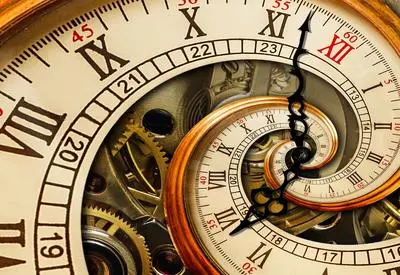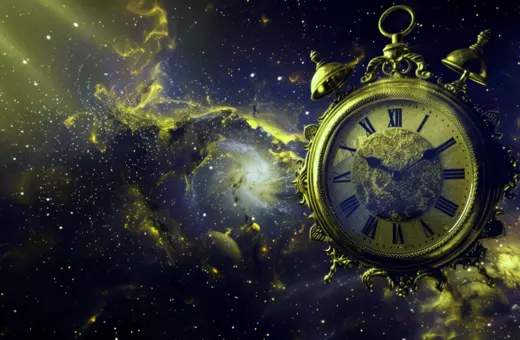In a famous letter to a bereaved family friend, Einstein wrote: “For those of us who believe in physics, the distinction between past, present and future is only a stubbornly persistent illusion". This has been widely interpreted to mean that Einstein’s theory of relativity itself implies that the passage of time is an illusion and that time, like space, has no direction, a position often referred to as “the block universe”. But despite Einstein revolutionizing our understanding of time, nothing in his theory of relativity suggests that the distinction between past, present, and future is an illusion, argues Tim Maudlin.
Albert Einstein had the double-edged gift of writing striking aperçus. Instead of saying “Quantum mechanics is on the right track, but I am not convinced that the laws of physics are indeterministic”, he wrote to his friend Max Born: “The theory provides much, but it doesn’t bring us closer to the mystery of the Old One. In any case, I am convinced that he doesn’t roll dice”. The quotability of “God doesn’t play dice with the universe” has resulted in it being widely accepted as Einstein’s primary complaint about quantum mechanics, which is not the case. It was rather the non-locality—the “spooky action-at-a-distance” in his pungent phrase—that he really found unacceptable.
 SUGGESTED READING
Einstein and why the block universe is a mistake
By Dean Buonomano
SUGGESTED READING
Einstein and why the block universe is a mistake
By Dean Buonomano
Another extremely widely cited Einstein text, also written as a personal note, has caused similar confusion. When his dear friend Michele Besso died in 1955, preceding Einstein himself by only a month, Einstein wrote a letter of condolence to Besso’s family. In it, he said “Now he has departed from this strange world a little ahead of me. That signifies nothing. For those of us who believe in physics, the distinction between past, present and future is only a stubbornly persistent illusion". Since one might reasonably say that time itself is the foundation of the distinction between past, present and future—it is the temporal relation of earlier/later between events that underpins these concepts—this passage has largely been taken to suggest that time itself is, in some sense, illusory. This quote has been the basis of what has come to be known as “the block universe”, which supposedly implies that the passage of time is an illusion, and that time is just like space, another dimension with no inherent fundamental direction. However, there is nothing in Einstein’s theory of relativity to support any of these claims.
___
In truth, I think that Einstein never regarded time as an illusion.
___
To begin with, if one of the discoveries of physics were that time is an illusion, it would be hard to even imagine a more momentous achievement. But it ought to immediately strike one as peculiar that if Einstein had really thought his theory of relativity implied that time is an illusion, he would only include this claim in a private note of condolence that he had no reason to expect ever to be made public.





















Join the conversation